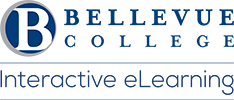Why does accessibility matter in online learning?
It’s the Law
Title II of the 1990 Americans with Disabilities Act (ADA) specifically states that colleges and public universities are required to provide every qualified student with the opportunity to be successful in all programs offered by the institution. When it was amended in 2008, the ADA extended the meaning of disability, increasing the number of people covered by the law.
Read the full text of the Americans With Disabilities Act
In addition to the ADA, the Rehabilitation Act of 1973 requires that institutions of higher education, which receive funding from the Federal Government, are required to provide access to adaptive aids and support services without discrimination. The law was amended in 1998 to specifically mandate that all software, hardware, telecommunications devices and web-based programs and information must be accessible.
Read the full text of the Rehabilitation Act of 1973
Accessibility is in the News
Lawsuits were recently filed (2015) against Harvard and MIT for failing to include intelligible Closed Captions for their online learning content. Read about it in the BC-Connect blog.
Seize the Opportunity
Norman Coombs, Professor Emeritus at the Rochester Institute of Technology, and a pioneer in the campaign for accessibility in distance learning, has said that the emergence of online learning means that students “who were formerly labeled ‘print disabled’ can now transcend that designation because today’s digitized content is display-independent: it can be presented in multiple modes, in whatever way works best for the particular user. As a result, online learning has the potential to provide a learning space that is fully accessible to the formerly print disabled without compromising its quality.” Norman Coombs, Making Online Teaching Accessible, Jossey-Bass (2010).
Accessibility Isn’t a Retrofit
To ensure success for all qualified students, accessibility must be built into the course from the beginning.
Look around our beautiful campus. Bellevue College is designed to be universally accessible to all qualified students. Buildings were planned with ADA-compliant door handles. The Disability Resource Center is available to help students gain access to adaptive equipment, tutoring and other accommodations designed to support student success. Wheel-chair ramps are clearly marked on campus maps. Online learning, like the campus, must be built to be accessible from the ground up. Accessibility isn’t a retrofit.
Read about creating accessible PowerPoint presentations
or
Read about creating accessible Word documents
or
Last Updated November 3, 2020
